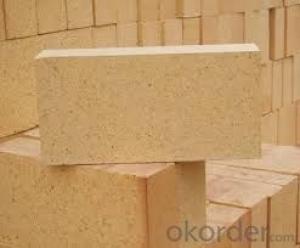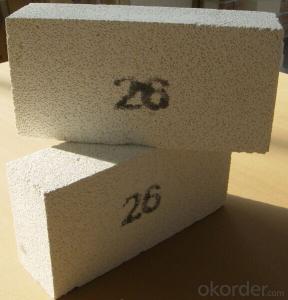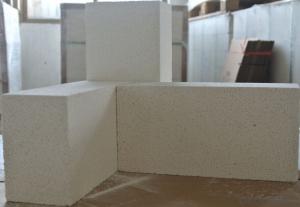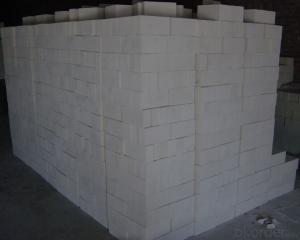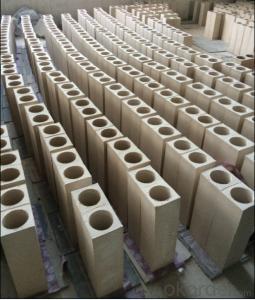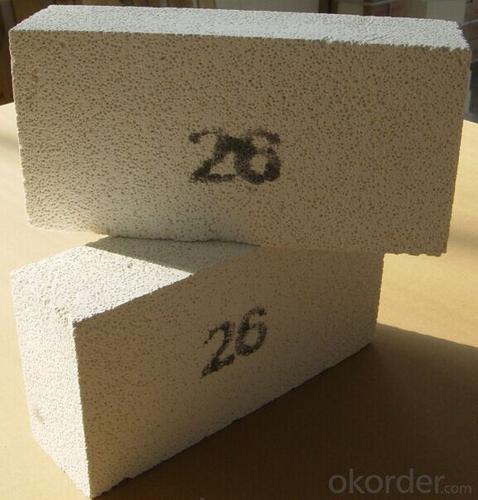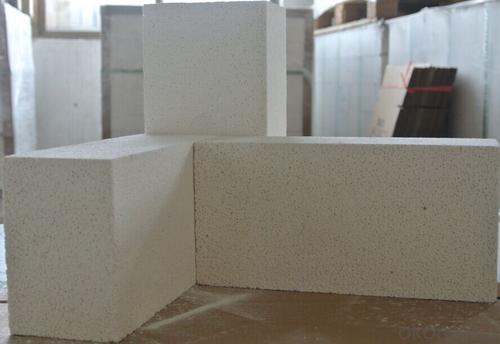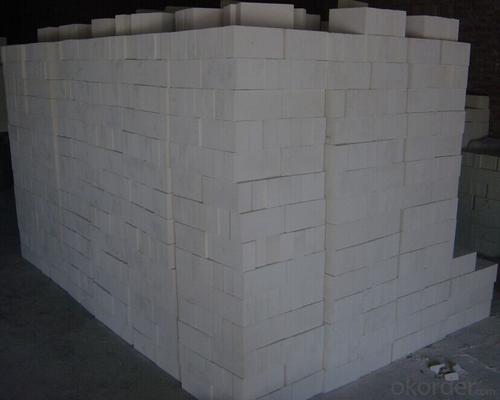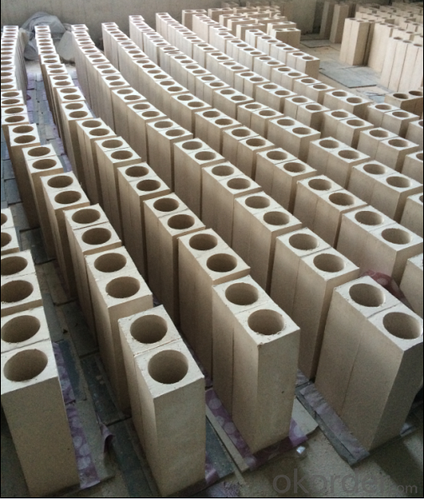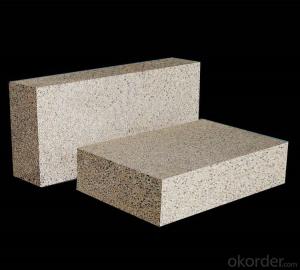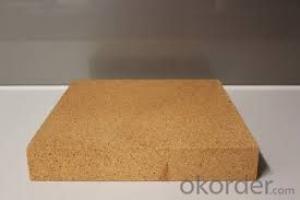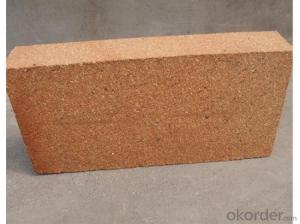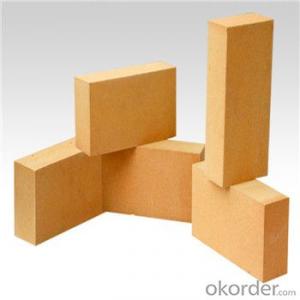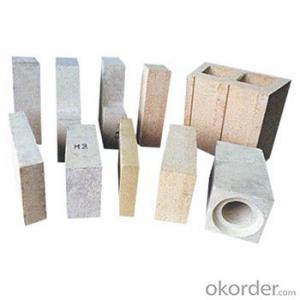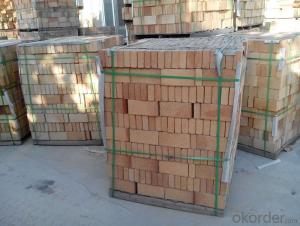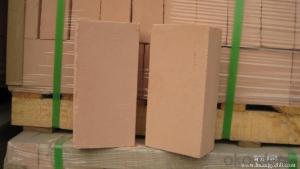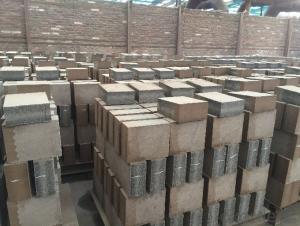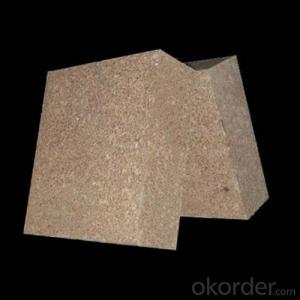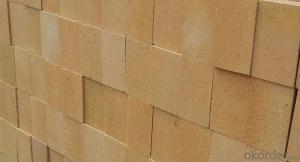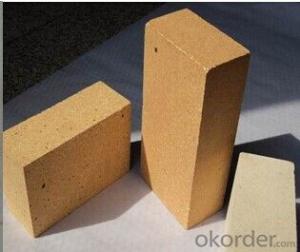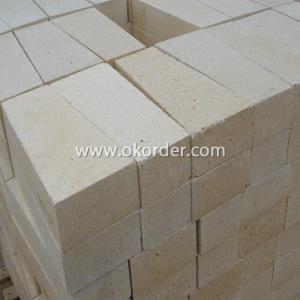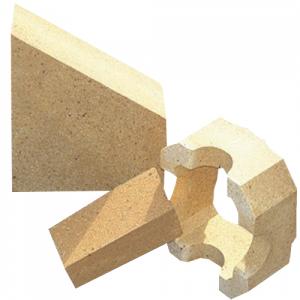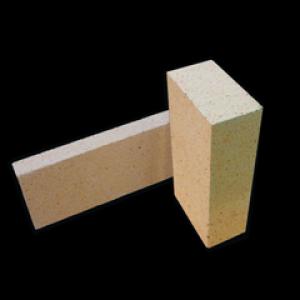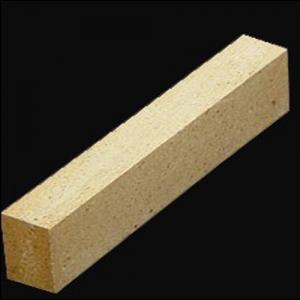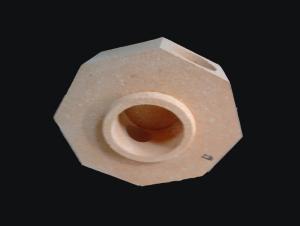Fireclay Brick for Blast Furnace Refractory
- Loading Port:
- Qingdao
- Payment Terms:
- TT OR LC
- Min Order Qty:
- 2 m.t
- Supply Capability:
- 5000 m.t/month
OKorder Service Pledge
OKorder Financial Service
You Might Also Like
Brief discription for Clay brick of refractory brick for blast furnace
CMAX Clay brick of refractory brick for blast furnace are classified according to alumina content ranging from 48% to 90%.
CMAX Clay brick of refractory brick for blast furnace are commonly used in blast furnace, hot blast furnace, the roof of electric furnace, teeming ladle, rotary kiln,regenerator, etc.
Brief features for Clay brick of refractory brick for blast furnace
◆Low thermal conductivity
◆Excellent acid and base slagging resistance
◆High refractoriness
◆Excellent thermal shock resistance
◆Excellent mechanical strength
◆Good spalling resistance and wear resistance.
◆Good corrosion resistance.
◆High-temperature creep rate is quite low.
◆Good volume stability at high temperature.
◆Low bulk density, low thermal conductivity, good thermal insulation performance.
Technical data for Clay brick of refractory brick for blast furnace
ITEM | UAL48 | UAL55 | UAL65 | UAL75 | UAL80 | UAL85 | ALP80 |
Refractoriness, ℃ | 1750 | 1770 | 1790 | 1790 | 1810 | 1810 | 1810 |
Apparent Porosity,% | 22 | 22 | 23 | 23 | 20 | 20 | 18 |
C.C.S, Mpa | 39 | 44 | 49 | 53 | 55 | 60 | 100 |
Refractories Under Load (0.2Mpa),℃ | 1420 | 1470 | 1500 | 1520 | 1500 | 1520 | 1550 |
Reheating Linear Change,% | 1450℃x2h 0.1~-0.4 | 1500℃x2h 0.1~-0.4 | 1500℃x2h 0.1~-0.4 | 1500℃x2h 0.1~-0.4 | 1550℃x2h -0.5~+0.5 | 1550℃x2h -0.5~+0.5 | 1550℃x2h -0.5~+0.5 |
Al2O3 Content , % | 48 | 55 | 65 | 75 | 80 | 85 | 82 |
FAQ
Q1:Are you a manufacture or trader?
A:Factory+trade(mainly factories,at the same time,we operates other related products).
Q2:Can we visit your factory?
A:Sure,welcome at any time,seeing is believing.
Q3:What's the MOQ of trial order?
A:No limit,We can offer the best suggestions and solutions according to your condition.
Q4:Which payment terms can you accept?
A:T/T,L/C are available for us.
Q5:After an order is confirmed,when to deliver?
A:15-25days after deposit.
Q6:Can you offers samples?
A:Of coures,samples are free but freight paid by the buyers.
Q7:What is the service life of your bricks?
A:The service life of different bricks is unlike.It also depends on your using condition and method.
- Q: What's the reason of cracks in refractory bricks?
- If it is made to refractory bricks,dry in the air naturally for 10 days, then put into the drying furnace, which is certainly better than the brick is put to the furnace directly, this is not easy to crack. After all, the moisture of brick will run in the air. See the semi-finished products (not crack is really no crack), but after drying, it has cracks, this is must because moisture runs quickly in a short time. If it cracks after high temperature heat treatment, the reason is very complicated, such as after high temperature burning, temperature decreases too fast, resulting in a large temperature change, then it cracks. Or in the process of high temperature heat treatment, the internal reaction is intense, and generate some volume expanding materials, resulting in cracks and so on. Mullite Petrochemical reaction, spinel reaction and so on, the reactions of a lot of materials are the volume expansion
- Q: Whether yellow dextrin is used in refractory bricks?
- use professional mortar, do not use yellow dextrin
- Q: Which is better for tunnel kiln suspended ceiling, refractory brick or ceramic fiber module ?
- It's certain that refractory brick is better.
- Q: What are the ingredients of brick?
- Is the most traditional brick masonry material, its composition is clay as the main raw material gradually to the development of industrial waste utilization of coal gangue and fly ash, and by solid and hollow porous to development, development by sintering to non sintering.
- Q: Would you please tell me how to use the simple method to identify shale brick, clay brick?
- Shale density is small, weigh in hand, feeling relatively light, clay brick is high density, relatively heavy.
- Q: What are the sizes and sizes of clay bricks?
- At present, with the minimum size of the maximum size of the market, for the maximum size of the clay brick, there are 600*250*200mm, 180*115*90mm, 300*300*55mm, and the minimum sizes 150*150*150mm, 235*115*55mm and so on, the construction industry the most basic materials for clay brick, must use in daily life is very broad.
- Q: The boiler is divided into several categories according to the structure, what characteristics does each have?
- package boiler and assemble boiler are divided into vertical boiler and horizontal boiler. Vertical boiler. Assembled boiler adapts to boiler more than 6 tons, the package adapts to boiler less than 10 tons.
- Q: How to prevent high alumina refractory brick from producing crack when reproduce high alumina refractory brick?
- 1-1, on the 1 in order to prevent the emergence of crack in the production of high alumina refractory brick. 2 is appropriate, the water absorption rate of the tube mill should be controlled below 6%, the excess air coefficient controlled between level 1 and 2. The water absorption rate of clinker of bauxite with high alumina controlled under 4%-5%, making the high aluminum refractory brick burning in a smoothly and steadily weak oxidation atmosphere, and should be adjusted by thermotechnic
- Q: The difference between clay bricks and clay bricks?
- Sintering bricks do not have clay bricks, so sintering bricks are made of stone. Clay brick is clay cooking, two yo, qualitative difference, but the appearance and color almost, but the quality is very different, life expectancy is also a great gap.
- Q: How to make the adhesion between refractory brick and the inner wall of the boiler more firm?
- High temperature resistance can also extend its service cycle. If there are conditions for the user heat resistant steel welding nails. By using high temperature high alumina brick, expansion joints can not be too large, with high-temperature adhensive paste masonry, recommend that you use the refractory brick, add the amount of long pieces of brick or rachel brick
Send your message to us
Fireclay Brick for Blast Furnace Refractory
- Loading Port:
- Qingdao
- Payment Terms:
- TT OR LC
- Min Order Qty:
- 2 m.t
- Supply Capability:
- 5000 m.t/month
OKorder Service Pledge
OKorder Financial Service
Similar products
Hot products
Hot Searches
Related keywords
